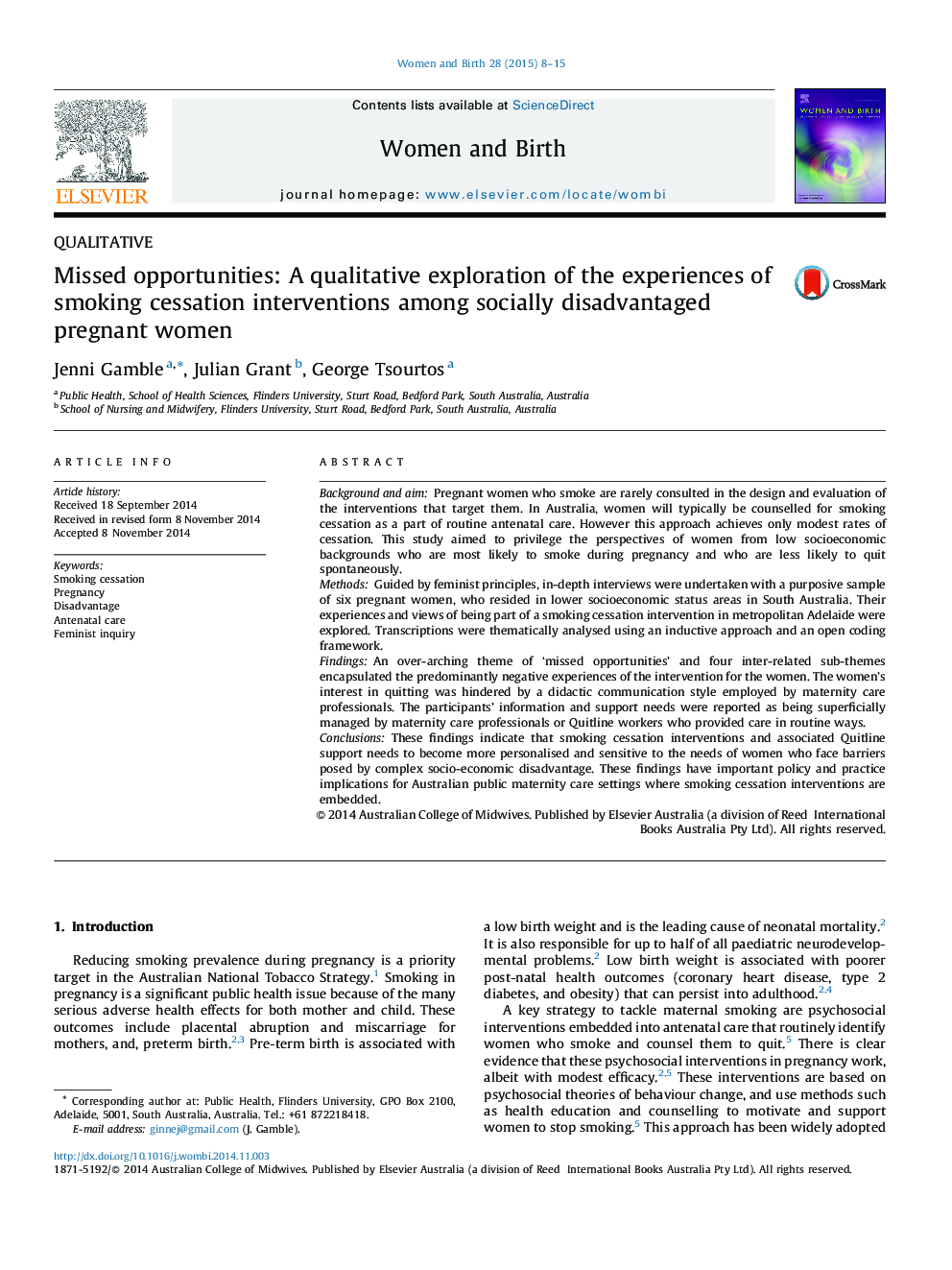| Article ID | Journal | Published Year | Pages | File Type |
|---|---|---|---|---|
| 2635905 | Women and Birth | 2015 | 8 Pages |
Background and aimPregnant women who smoke are rarely consulted in the design and evaluation of the interventions that target them. In Australia, women will typically be counselled for smoking cessation as a part of routine antenatal care. However this approach achieves only modest rates of cessation. This study aimed to privilege the perspectives of women from low socioeconomic backgrounds who are most likely to smoke during pregnancy and who are less likely to quit spontaneously.MethodsGuided by feminist principles, in-depth interviews were undertaken with a purposive sample of six pregnant women, who resided in lower socioeconomic status areas in South Australia. Their experiences and views of being part of a smoking cessation intervention in metropolitan Adelaide were explored. Transcriptions were thematically analysed using an inductive approach and an open coding framework.FindingsAn over-arching theme of ‘missed opportunities’ and four inter-related sub-themes encapsulated the predominantly negative experiences of the intervention for the women. The women's interest in quitting was hindered by a didactic communication style employed by maternity care professionals. The participants’ information and support needs were reported as being superficially managed by maternity care professionals or Quitline workers who provided care in routine ways.ConclusionsThese findings indicate that smoking cessation interventions and associated Quitline support needs to become more personalised and sensitive to the needs of women who face barriers posed by complex socio-economic disadvantage. These findings have important policy and practice implications for Australian public maternity care settings where smoking cessation interventions are embedded.
